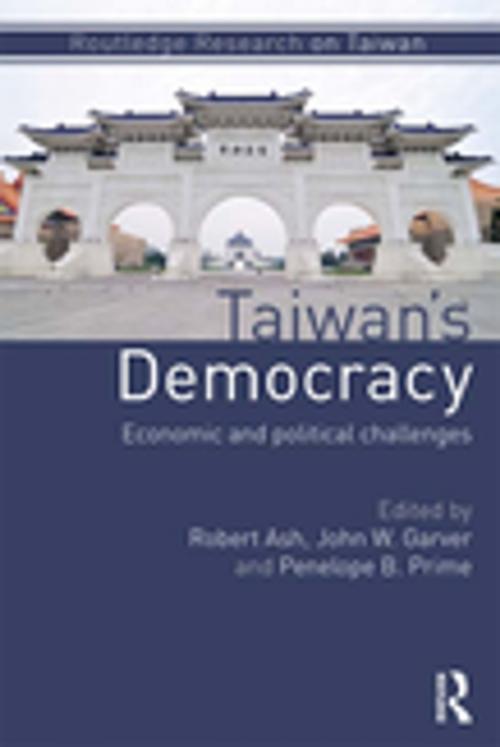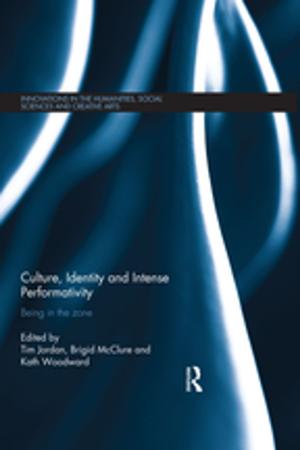Taiwan's Democracy
Economic and Political Challenges
Business & Finance, Economics, International Economics, International, Nonfiction, Social & Cultural Studies, Political Science, International Relations| Author: | ISBN: | 9781136672774 | |
| Publisher: | Taylor and Francis | Publication: | July 3, 2013 |
| Imprint: | Routledge | Language: | English |
| Author: | |
| ISBN: | 9781136672774 |
| Publisher: | Taylor and Francis |
| Publication: | July 3, 2013 |
| Imprint: | Routledge |
| Language: | English |
Taiwan’s rapid industrialization during the 1960s and 1970s, combined with the democratic revolution that began with the lifting of martial law in 1987 were of deep historic importance. Over the next decade Taiwan’s "political miracle" matched its earlier "economic miracle" creating a vibrant liberal democracy complete with freedom of speech, association and assembly, rule of law, and competitive and fair multi-party elections. The continuation of these achievements and the new challenges that have surfaced are addressed in rich detail in the chapters of this volume by an international team of experts. One of the biggest such challenges is Mainland China’s economic success, which has added to the complexity of Taiwan’s economic and political policy options. A number of the contributors to this volume consider Taiwan’s response to China’s economic rise and show how Taiwanese companies have strategically taken advantage of the changing economic environment by moving up the value chain of production within Taiwan while also taking the opportunity to invest overseas.
With chapters covering a wealth of topics including:
- Constitutional reform
- National identity
- Party politics
- Taiwan's development model
- Industrial policy
- Trade and investment
- Globalization
- Sustainable development
Taiwan's Democracy will be of huge interest to students and scholars of Taiwan studies, Chinese politics and economics, international politics and economics, and development studies.
Taiwan’s rapid industrialization during the 1960s and 1970s, combined with the democratic revolution that began with the lifting of martial law in 1987 were of deep historic importance. Over the next decade Taiwan’s "political miracle" matched its earlier "economic miracle" creating a vibrant liberal democracy complete with freedom of speech, association and assembly, rule of law, and competitive and fair multi-party elections. The continuation of these achievements and the new challenges that have surfaced are addressed in rich detail in the chapters of this volume by an international team of experts. One of the biggest such challenges is Mainland China’s economic success, which has added to the complexity of Taiwan’s economic and political policy options. A number of the contributors to this volume consider Taiwan’s response to China’s economic rise and show how Taiwanese companies have strategically taken advantage of the changing economic environment by moving up the value chain of production within Taiwan while also taking the opportunity to invest overseas.
With chapters covering a wealth of topics including:
- Constitutional reform
- National identity
- Party politics
- Taiwan's development model
- Industrial policy
- Trade and investment
- Globalization
- Sustainable development
Taiwan's Democracy will be of huge interest to students and scholars of Taiwan studies, Chinese politics and economics, international politics and economics, and development studies.















